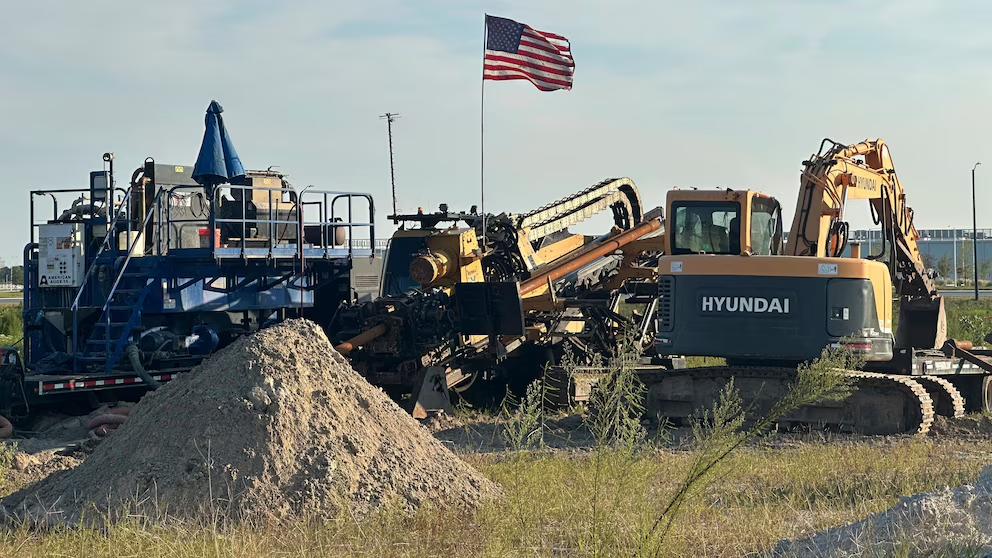A dramatic episode involving the detention of Hyundai workers in Georgia has captured international attention, bringing into sharp focus the complex interplay between labor rights, global supply chains, and diplomatic relations. South Korea recently struck a deal with the United States for the release of several workers detained during a controversial raid on a Hyundai supplier facility in the state of Georgia. The incident, which unfolded against the backdrop of heightened scrutiny over labor practices in America’s growing electric vehicle manufacturing industry, has not only rattled communities in the U.S. South but also sparked discussions in Seoul and Washington about the treatment of foreign workers, corporate accountability, and the future of trade relations.
- The Background of the Georgia Hyundai Raid
- Diplomatic Negotiations Between Seoul and Washington
- The Role of Hyundai in the Dispute
- The Broader Context: Labor Rights in the Global Supply Chain
- Economic and Political Implications
- Expert Opinions on the Deal
- The Human Side of the Story
- Looking Ahead: Lessons and Reforms
- FAQs
- Why were Hyundai workers detained in Georgia?
- How did South Korea secure the release of the workers?
- What does this mean for Hyundai’s future in the U.S.?
- How does this case affect U.S.-South Korea relations?
- What lessons can other multinational corporations learn from this case?
- Conclusion
At its heart, this is a story about more than just one raid. It is about the shifting dynamics of globalization, the vulnerabilities of migrant laborers in foreign jurisdictions, and the pressures multinational corporations face in maintaining ethical supply chains. The release of these workers was not simply the outcome of a routine legal negotiation but the result of intense diplomatic efforts, political bargaining, and the recognition that how labor disputes are handled can reverberate far beyond the factory floor.
The Background of the Georgia Hyundai Raid
The raid in Georgia stemmed from mounting allegations of labor violations in the state’s fast-growing auto manufacturing sector. Hyundai, a cornerstone of South Korea’s industrial pride, has become a vital player in the U.S. economy, particularly in the American South where automotive jobs have revitalized communities. However, the rise of this industry has not been without controversy.
Authorities in Georgia launched an investigation into reports that workers at a Hyundai supplier plant were being subjected to unsafe conditions, unfair wages, and excessive working hours. The situation escalated when federal and state agencies conducted a coordinated raid on the facility, detaining several employees, many of whom were South Korean nationals working under specialized contracts.
The detentions quickly became a flashpoint. For local officials, the operation was framed as an enforcement of U.S. labor laws and immigration regulations. For South Korea, it represented an alarming development that threatened not only the livelihoods of its citizens abroad but also the reputation of one of its most successful multinational corporations.
Diplomatic Negotiations Between Seoul and Washington
What followed was a flurry of diplomatic engagement. The South Korean government, under pressure from families and labor advocates, initiated high-level talks with U.S. authorities to secure the release of the detained workers. The negotiations revealed how sensitive labor disputes can become when they intersect with international relations.
South Korea emphasized the need for due process, humane treatment, and recognition of the workers’ contractual obligations. At the same time, the U.S. side faced domestic pressure to demonstrate that labor laws would be enforced uniformly, regardless of nationality or corporate affiliation. This balancing act led to a series of behind-the-scenes meetings involving diplomats, labor officials, and representatives from Hyundai.
The eventual deal that facilitated the release of the workers underscored the importance of bilateral trust. South Korean diplomats secured assurances that while U.S. labor laws would continue to apply, the rights of foreign workers would be respected, and broader systemic reforms would be pursued rather than punitive measures targeting individual employees.
The Role of Hyundai in the Dispute
Hyundai’s role in this controversy cannot be overstated. As one of the largest employers in Georgia’s manufacturing sector, the company has been at the center of state-led efforts to attract foreign investment. Yet the company also faces growing scrutiny over its labor practices, both in the U.S. and globally.
Critics argue that the rapid expansion of Hyundai’s supply chain in the United States has sometimes come at the expense of rigorous labor oversight. Reports of long working hours, insufficient safety measures, and the use of migrant workers have raised concerns among advocacy groups. On the other hand, Hyundai has consistently defended its practices, pointing to billions in investment, thousands of jobs created, and the broader economic revitalization of Southern states.
The raid and subsequent diplomatic fallout represent a turning point for the company. While Hyundai has pledged to cooperate with U.S. regulators and improve transparency, the incident has amplified calls for stronger accountability measures to ensure that workers—whether American or foreign—are treated fairly.
The Broader Context: Labor Rights in the Global Supply Chain
This dispute cannot be viewed in isolation. The detention of South Korean workers in Georgia highlights broader challenges facing global supply chains, particularly in industries undergoing rapid transformation like electric vehicles.
The auto industry is under immense pressure to meet consumer demand, transition to cleaner technologies, and maintain profitability in a competitive market. In such an environment, labor practices often come under strain. According to the International Labour Organization, migrant workers are disproportionately vulnerable to exploitation, with up to 24% of documented labor violations in manufacturing sectors worldwide involving foreign employees.
For the U.S., the Hyundai incident reveals the contradictions of relying on foreign investment while simultaneously grappling with domestic concerns about job quality and immigration. For South Korea, it underscores the need to protect its citizens abroad while preserving the global reputation of its flagship corporations.
Economic and Political Implications
The release of the detained workers has alleviated immediate tensions, but the underlying issues remain unresolved. Economically, Hyundai’s Georgia plant is critical to both the U.S. and South Korea. The facility is central to Hyundai’s strategy to dominate the North American electric vehicle market, with billions of dollars invested and thousands of jobs tied to its success. Any disruption in operations could ripple across supply chains, affecting not only the company but also local economies.
Politically, the case has tested U.S.-South Korea relations at a time when both nations are seeking closer cooperation on security and trade. While the successful negotiations demonstrate resilience in the bilateral partnership, they also highlight potential fault lines. Labor rights, immigration enforcement, and corporate responsibility could all become recurring sources of friction unless addressed comprehensively.
Expert Opinions on the Deal
Experts in labor law and international relations have weighed in on the significance of the deal. Dr. Maria Gonzalez, a professor of labor studies at Emory University, noted that “this incident reflects the growing pains of a globalized labor market. When companies like Hyundai expand rapidly into new territories, oversight mechanisms often lag behind. That gap leaves workers vulnerable and governments scrambling to respond.”
Similarly, political analyst Park Joon-ho in Seoul emphasized the diplomatic dimensions: “The South Korean government had no choice but to intervene decisively. For Seoul, this was not just about protecting its citizens but about safeguarding the reputation of its industrial champions, which are deeply tied to national pride and economic strategy.”
The Human Side of the Story
Behind the headlines are the workers themselves, whose lives were upended by the raid. Many had traveled thousands of miles from South Korea, leaving behind families, to work in Georgia’s expanding auto industry. Their sudden detention thrust them into a legal and cultural system they barely understood.
Family members in South Korea expressed relief at the news of their release but also lingering fears about what comes next. For some workers, the ordeal has left them questioning whether the promise of overseas employment was worth the risk. For others, the experience has strengthened their resolve to demand better treatment and stronger protections for migrant laborers worldwide.
Looking Ahead: Lessons and Reforms
The Hyundai raid in Georgia and the subsequent deal for the workers’ release should serve as a catalyst for reform. Both the U.S. and South Korea have an opportunity to address systemic issues rather than treating this incident as an isolated crisis.
For the United States, that means strengthening labor inspection mechanisms, ensuring fair treatment of migrant workers, and balancing enforcement with humanitarian considerations. For South Korea, it means offering more robust support systems for its citizens working abroad, including legal assistance and stronger labor rights advocacy. For Hyundai and other multinational corporations, the lesson is clear: globalization brings not only opportunities but also responsibilities.
FAQs
Why were Hyundai workers detained in Georgia?
The workers were detained during a raid by U.S. authorities investigating labor violations at a Hyundai supplier plant. Allegations included unsafe conditions, unfair wages, and excessive hours.
How did South Korea secure the release of the workers?
Through diplomatic negotiations, South Korea struck a deal with U.S. authorities that emphasized humane treatment, due process, and respect for the workers’ contractual obligations.
What does this mean for Hyundai’s future in the U.S.?
The incident has placed Hyundai under greater scrutiny but is unlikely to derail its long-term investment in the U.S. Instead, it is expected to push the company toward stronger labor oversight and compliance.
How does this case affect U.S.-South Korea relations?
While the successful release of the workers demonstrates strong diplomatic ties, the case highlights potential areas of tension around labor rights, corporate responsibility, and immigration enforcement.
What lessons can other multinational corporations learn from this case?
Companies expanding globally must prioritize transparent and ethical labor practices, invest in oversight, and ensure that the rights of workers are protected to avoid reputational and legal risks.
Conclusion
The deal struck between South Korea and the United States for the release of workers detained in the Georgia Hyundai raid is more than just a diplomatic success story. It is a wake-up call about the vulnerabilities within global supply chains and the responsibilities that come with economic expansion.
For workers, it is a reminder of both the opportunities and dangers of seeking employment abroad. For governments, it is a test of their ability to protect citizens and uphold labor standards in a globalized economy. And for corporations like Hyundai, it is a pivotal moment to recommit to ethical practices that align with both business goals and human dignity.







